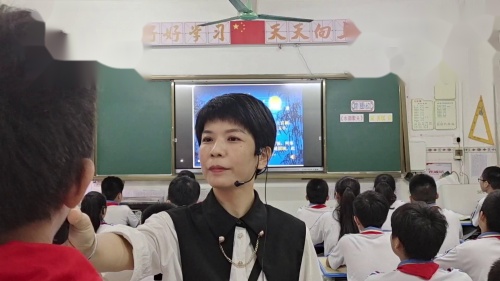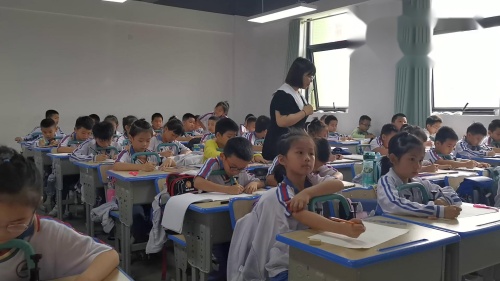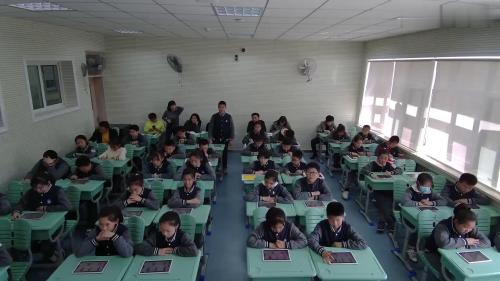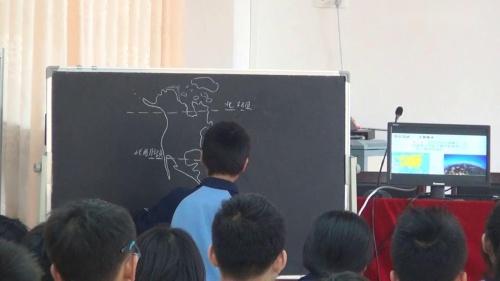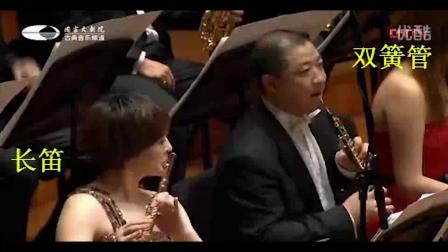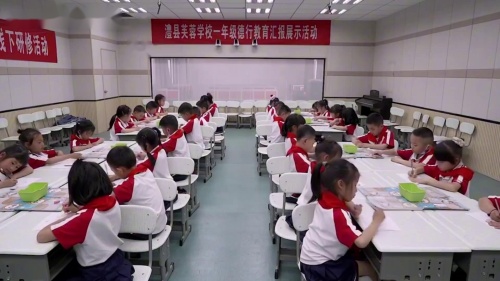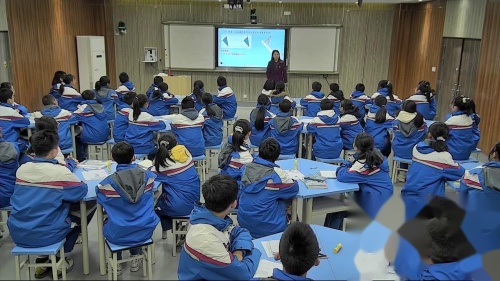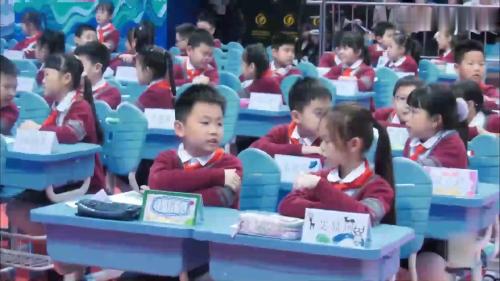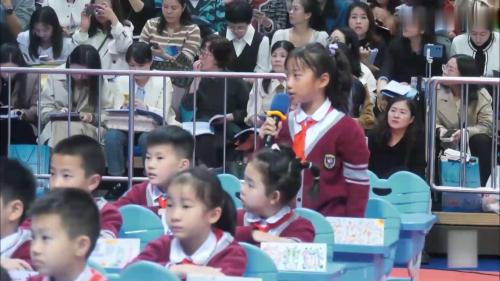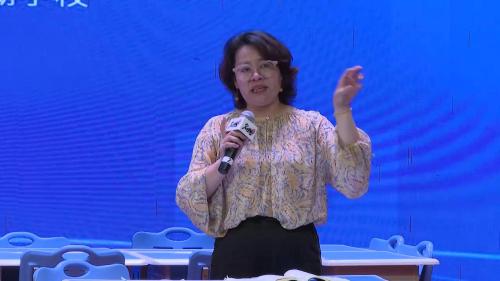高中英语学习之短文改错
其实我们所做的英语卷子中的题型都是固定的,当然做每个都有每个的方法,今天小编教大家如何做短文改错。短文改错和语法填空以及作文都是最考验基础的,你的基础扎不扎实从这些题中就能看出来,如果你是基础好的,下面这些方法会让你更好,如果基础不好也不用担心,毕竟基础一天学不来,但是有些套路我们还是可以应用的。
一短文改错出现的考点方面
词性问题
一个短文改错中会出现
形容词与副词的混用 还有形容词和形容词混用-ed/-ing 还有有些词虽然以ly结尾但是它不是副词,会诱导我们做题
名次单复数问题根据上下文
定冠词the和不定冠词a/an的混用,主要看特指与不特指和上文有没有提到
介词的应用,主要是固定搭配这个就靠近基础了,所以平时要多记多背
连词主要考前后句关系,是并列,顺承, 还是转折,经常会考and,but,however
另外更要注意有些连词不能一起运用这也就是我们汉语与英语的不同之处,比如because+so though+but这些都是不可以的所以做题时要多留心,认真翻译我们还会遇到and+or的混用
否定词的使用是根据句子翻译的,所以翻译很重要,平时多练习翻译课文,这个分才能容易拿到
还有代词,我们很容易的会发现有些题会在前面提到男的后面就出来女的,代词由him——her这种问题万一出了一定要多留意!
疑问词how,what,when,会有一个常考的疑问词+to do 再就会考在从句里,看做不做成分,还要会区分名词性从句,到底哪个是定语从句哪个是同位语从句,这也是一个大难考点下面呢就带大家区分一下各种从句,并做一下相应的练习
(1)表语从句
1. 定义:用作表语的从句叫做表语从句。
2. 引导表语从句的关联词的种类:
(1) 从属连词 that 。在从句中不做成分。如:The trouble is that I have lost his address.麻烦是 我把他的地址丢了。 The reason was that he was late for school.
(2) 从属连词 whether,as,as if。如:
1.He looked just as he had looked ten years before.他看起来还与十年前一样。
2.The question is whether they will be able to help us. 问题是他们是否能帮我们。
注:从属连词 if 一般不用来引导表语从句,但 as if却可引导表语从句,如:
All this was over twenty years ago, but it’s as if it was only yesterday.
这都是 20多年前的事了,但宛如昨天一样。
The key is whether we can solve the problem.//It looked as if it was going to rain.
注:能跟表语从句的谓语动词一般为系动词 be, seem, look, sound 等。如:
He looked just as he had looked ten years before. 他看起来还与十年前一样。
It sounds as if someone is knocking at the door.
连接代词 who, whom, whose, what, which, whoever, whatever, whichever 在表语从句中做主 语、宾语等。如:The problem is who we can get to replace her. 问题是我们能找到谁去替 换她呢。
That was what she did this morning on reaching the attic. 那就是她今晨上了阁楼干的。 The problem is who we can get to replace her.
我想问的是谁离开了。 My question is who left.
连接副词 where, when, how, why。
What I wonder is when he left. 我想知道他是何时离开的。
This is where they once lived. 这就是他们曾经住过的地方。
That is why he didn't come here.
The question is how he did it.
(3) 连词 because 可引导表语从句。如:
I think it is because you are doing too much. 我 想 这 是 因 为 你 做 得 太 多 。 It's just because he doesn't know her.
That's because he didn't understand me. 那是因为他没有理解我 .(That's because…强调原因 ) That's why he got angry with me.那正是他对我生气的原因。 (That's why…强调结果 )
(4) 在一些表示 ― 建议、 劝说、 命令 ‖ 的名词后面的表语从句中, 谓语动词用虚拟语气。 should+动词原形表示, should 可省略。如:
My suggestion is that we (should) start early tomorrow. 我的建议是我们明天一早就出发。
表语测试
1. The question is ________ we will have our sports meet next week.
A. that B. if C. when D. whether
2. The reason why he failed is ________he was too careless.
A. because B. that C. for D. because of
3. Go and get your coat. It’ s ________you left it
A. where B. there C. there where D. where there
4. The problem is _________to take the place of Ted
?A. who can we get B. what we can get
C. who we can get D. that we can get
5. What I want to know is ______ he likes the gift given by us.
A. that B. if C. whether D. 不填
6. The reason is_________ I missed the bus.
A. that B. when C. why D. what 7. That is __ ___ we were late last time.
A. that B. when C. why D. what
8. She looked _________ she were ten years younger.
A. that B. like C. as D. as though
9. — I fell sick!
--I think it is _______ you are doing too much.
A. why B. when C. what D. because
10. The reason why he hasn’t come is ___________.
A. because his mother is ill B. because of his mother’s being ill C. that his mother is ill D. for his mother is ill
11. — He was born here.
-- That is _______ he likes the place so much.
A. that B. what C. why D. how 12.That is ______ Lu Xun once lived.
A. what B. where C. that D. why 13. _______your father wants to know is________ getting on with your studies. A. What; how are you B. That; how you are
C. How; that you are D. What; how you are
14. The trouble is__________ we are short of tools.
A. what B. that C. how D. why that 15. America was __________was first called ―India‖ by Columbus.
A. what B. where C. the place D. there where
16. China is becoming stronger and stronger. It is no longer_________ .
A. what it used to be B. what it was used to being
C. what it used to being D. what it was used to be
17. ________he really means is ________he disagrees with us.
A. What … that B. That … what
C. What … what D. That … what
18. The energy is ________ makes the cells able to do their work.
A. that B. which C. what D. such
19 — I drove to Zhuhai for the air show last week.
— Is that_____ you had a few days off?
A. why B .what C. when D. where
20 .I had neither a raincoat nor an umbrella ____I got wet through.
A. It’s the reason B. That’s why C. There’s why D. It’s how
21. See the flags on top of the building? That was ______ we did this morning. A. when B. which C. where D. what
22. --- Are you still thinking about yesterday’s game?
---Oh, that’s _____.
A. what makes me feel excited B. whatever I feel excited about
C. how I feel about it D. when I feel excited
23. What surprised me was not what he said but ______ he said it.
A. the way B. in the way that C. in the way D. the way which
答案
1——5: DBACC
6——10 :ACDDC
11——15:CBDBA
16——20: AACAB
21——23: DAA
(2)主语从句
1. 定义:用作主语的从句叫做主语从句。
2. 构成:关联词 +简单句
3. 引导主语从句的关联词有三类:
(1) 从属连词 that 。 如:That they were in truth sisters was clear from the facial resemblance between them.
很明显,她们确是亲姐妹,她们的脸型很相似。
(2) 从属连词 whether 。如:
Whether he’ll come here isn’t clear. 他是否会来这里还不清楚。
(3) 连接代词 who, whom, whose, what, which, whoever, whatever, whichever
连接副词 where, when, how, why。如:
What she did is not yet known. 她干了什么尚不清楚。
How this happened is not clear to anyone. 这事怎样发生的,谁也不清楚。
Whoever comes is welcome. 不论谁来都欢迎。
Wherever you are is my home ---- my only home. 你所在的任何地方就是我的家 ----我唯一的 家。
解释:
1. 主语从句能用 it 作形式上的主语。常以 it 作形式主语的句型有:
A. It+be+形容词 (obvious, true, natural, surprising, good, wonderful, funny, possible, likely, certain, probable, etc.)+that从句。如:
It is certain that she will do well in her exam. 毫无疑问她考试成绩会很好。
It is probable that he told her everything. 很可能他把一切都告诉她了。
B. It+be+名词词组 (no wonder, an honour, a good thing, a pity, no surprise, etc.)+that从句。如: It’s a pity that we can’t go. 很遗憾我们不能去。
It’s no surprise that our team should have won the game. 我们没赢这场比赛真意外。
C. It+be+过去分词 (said, reported, thought, expected, decided, announced, arranged, etc.)+that从 句。如:
It is said that Mr. Green has arrived in Beijing. 据说格林先生已经到了北京。
It is reported that China has sent another man-made earth satellite into orbit.
据报道中国又成功地发射了一颗人造地球卫星。
D. It+seem, happen等不及物动词及短语 +that从句。如:
It seems that Alice is not coming to the party at all. Alice似乎不来参加晚会。
It happened that I was out that day. 碰巧我那天外出了。
E. It+doesn’t matter (makes no difference, etc.)+连接代词或连接副词引起的主语从句。如: It doesn’t matter whether she will come or not. 她是否来这无关紧要。
It makes no difference where we shall have the meeting. 我们在哪里开会毫无区别。
F. 当 that 引导的主语从句出现在疑问句中时,要以 it 作形式主语,而把主语从句后置。如: Is it true that the scientist will give us a lecture next week? 下周那位科学家将给我们作报告是 真的吗?
Does it matter much that they will not come tomorrow? 他们明天不来很要紧吗?
G . 当主语从句出现在感叹句中时,要以 it 作形式主语,而把主语从句后置。如:
How strange it is that the children are so quiet! 孩子们这么安静真奇怪!
2.注意连接代词 whoever, whatever, whichever等引导主语从句的含义
Whoever comes will be welcome. (whoever=the person who) 来的人将受到欢迎。
Whatever he did was right. (whatever=the thing that) 他所做的事情是正确的。
Whichever of you comes in will receive a prize. (whichever=anyone of you who) 你们当中不论 哪个进来将会得到奖
练习
1. has helped to save the drowning girl is worth praising.
A. Who B. The one C. Anyone D. Whoever
2. It was he said disappointed me.
A. what ; that B. that; that C. what; what D. that; what
3. we’ll go camping tomorrow depends on the weather.
A. If B. Whether C. That D. Where
4. he said at the meeting surprised everybody present.
A. What B. That C. The fact D. The matter
5. was to return to school.
A. That really interested him B. What really interested him
C. Which really interested him D. That interest him really
6. makes mistakes must correct them.
A. What B. That C. Whoever D. Whatever
7._______ he made an important speech at the meeting was true.
A. That B. Why C. What D. How
8. ________we’ll go camping tomorrow depends on the weather.
A If B Whether C That D Where
9. It worried her a bit ______ her hair was turning gray.
A. whether B. That C. what D. when
10.What I say and think ___ none of your business.
A. is B. are C. has D have
11. Does _______ matter if he can't finish the job on time?
A. this B. that C. he D. it
12. It worried her a bit _______ her hair was turning grey.
A. which B. that C. if D. for
13. _______ is a fact that English is being accepted as an international language.
A. There B. This C. That D. It
14. _______ what they told me really true?
A. Has B. Is C. Does D. Have
15. It matters little _____ a man dies, but ____ matters much is ____ he lives.
A. how; what; how B. how; it; how
C. why; it; why D. that; what; that
16. ____ she couldn't understand was ____ fewer and fewer students showed interest
in her lessons.
A. What; why B. That; what C. What; because D. Why; that
17. It is pretty well understood _______ controls the flow of carbon dioxide in and out
the atmosphere today.
A. that B. when C. what D. how
18. _______ fashion differs from country to country may reflect the cultural
differences from one aspect.
A. What B. That C. This D. Which
19. -What made her parents so angry?
- _______ she had failed in the examination.
A. As B. Because C. Since D. That
20. _______ we'll go camping tomorrow depends on the weather.
A. If B. Whether C. That D. Where
21. -Do you remember _______ he came?
-Yes, I do. He came by car.
A. how B. when C. that D. if
22. It was a matter of _______ would take the position.
A. who B. whose C. whom D. whomever
23. -I drove to Zhuhai for the air show last week.
-Is that _______ you had a few days off?
A. why B. when C. what D. where
24. I read about it in some book or other, does it matter _______ it was?
A. where B. what C. how D. which
25. It is necessary that a college student _______ at least a foreign language.
A. masters B. should master C. mastered D. will master
练习 1-10 D A B A B C A B B A 11-15 DBDBA 16-20 ACBDB 21-25 AAADB
(3)宾语从句
在句子中起宾语作用的从句叫做宾语从句 . 宾语从句分为三类 :动词的宾语从句 , 介词的宾语 从句和形容词的宾语从句 .
时态:
1. 主句用一般现在时,从句可用任意时态。
2. 主句用过去时,从句用过去某个时态。
3. 主句用过去时,从句是真理时,只用一般现在时。
一、宾语从句的连接词
从属连词
连接宾语从句的从属连词主要有 that,if,whether.
that 引导表示陈述句的宾语从句 , 而 if 和 whether 引导表示“是否”的宾语从句 .
He told me that he would go to the college the next year
他告诉我他下一年上大学 .
I don’t know if there will be a bus any more.
我不知道是否还会有公交车 .
Nobody knew whether he could pass the exam.
没人知道他是否会通过考试 .
连接代词
连接 代词 主要有 who, whom ,whose ,what ,whoever ,whomever ,whosever, whatever, whichever 等 .
连接代词一般指疑问 , 但 what, whatever除了指疑问外 , 也可以指陈述 .
Do you know who has won Red Alert game?
你知道谁赢了这一局红警游戏吗 ?
I don’t know whom you should depend on.
我不知道你该依靠谁 .
The book will show you what the best CEOs know.
这本书会告诉你最好的执行总裁该了解些什么 .
Have you determined whichever you should buy,a Motorola or Nokia cell phone?
你决定好是买诺基亚还是摩托罗拉的电话了吗 ?
连接副词
连接副词主要有 when,where,why,how,whenever,wherever,however 等 .
He didn’t tell me when we should meet again.
他没有告诉我什么时候我们能再见面 .
Could you please tell me how you read the new panel?
你能告诉我怎么用这个新的操作盘吗 ?
None of us knows where these new parts can be bought.
没有人知道这些的新的零件能在哪里买到 .
二、动词的宾语从句
大多数动词都可以带宾语从句
We all expect that they will win , for members of their team are stronger.
我们都预料他们会赢 , 因为他们的队员更强壮 .
He told us that they would help us though the whole work.
他告诉我们在整个工作中 , 他都会帮忙的 .
部分“动词 +副词”结构也可以带宾语从句
I have found out that all the tickets for the concert have been sold out.
我发现这场音乐会的所有票都卖光了 .
Can you work out how much we will spend during the trip?
你能计算出这次旅行我们将花费多少钱吗 ?
动词短语也可以带宾语从句
常见的这些词有 :
make sure确保 make up one’ s mind下决心 keep in mind牢记
Make sure that there are no mistakes in your papers before you turn them in.
在上交试卷前确保没有任何错误 .
可运用形式宾语 it 代替的宾语从句
①动词 find,feel,consider,make,believe 等后面有宾语补足语的时候 , 则需要用 it 做形式宾语 而将 that 宾语从句后置 .
I think it necessary that we take plenty of hot water every day .
我认为每天多喝开水是有必要的 .
I feel it a pity that I haven’t been to the get-together.
我没去聚会 , 感觉非常遗憾 .
I have made it a rule that I keep diaries.
我每天写日记成了习惯 .
We all find it important that we (should) make a quick decision about this mater.
我们都认为对这件事马上做出决定很重要 .
②有些动词带宾语从句时寻要在宾语与从句前加 it
这类动词主要有 :hate, take , owe, have, see to.
I hate it when they with their mouths full of food.
我讨厌他们满嘴食物时说话 .
He will have it that our plan is really practical.
他会认为我们的计划确实可行 .
We take it that you will agree with us.
我们认为你会同意我们的 .
When you start the engine, you must see to it that car is in neutral.
开启发动机时 , 一定要使汽车的离合器处于空挡位置 .
③若宾语从句是 wh-类 , 则不可用 it 代替
We all consider what you said to be unbelievable.
我们都认为你所说的是不可信的 .
We discovered what we had learned to be valuable.
我们发现我们所学到的东西都是有用的 .
三、介词的宾语从句
用 wh-类的介词宾语从句
We are talking about whether we admit students into our club.
我们正在讨论是否让学生加入我们的俱乐部 .
The new book is about how Shenzhou 6 manned spaceship was sent up into space.
这本新书是关于神州 6号载人航天飞船是如何升如太空的 .
用 that,if 引导的介词宾语从句
有时候 except,but,besides 三个介词后可见到 that 引导的宾语从句
I know nothing about my new neighbor except that he used to work with a company.
对于我的新邻居我只知道他曾在一家公司上班 , 其他一无所知 .
四、形容词的宾语从句
常用来引导宾语从句的形容词有 :
sure,certain,glad,please,happy,sorry,afraid,satisfied,surprised
I am sure I will pass the exam.
我确信我会通过考试 .
I am sorry that I have troubled you so long.
很抱歉我这么长时间在打扰你 .
He is glad that Li Ming went to see him when he was ill.
他很高兴在他生病的时候李明能去看望他 .
五、 if,whether 在宾语从句中的区别
① if 和 whether 在作 “是否” 解时 , 引导宾语从句常放在动词 know,ask,care,wonder,find out等之后 , 介词后一般不用 if
② 少数动词 , 如 :leave,put,discuss,doubt后的宾语从句常用 whether.
③ whether 后可以加 or not,但是 if 不可以 .
④ 在不定式前只能用 whether.
(如:I can’ t decide whether to stay. 我不能决定是否留下。 )
⑤ 避免歧异时 , 我们常用 whether 而不用 if.
六、哪些宾语从句不可以省略引导词 that
当 that 作 learn,suggest,explain,agree,wonder,prove,mean,state,feel,hold 等动词的宾语时 ; 当宾语从句较长时 ;
当主语状语置于主句尾 , 宾语从句之前时 ;
当主语谓语动词 (包括非谓语动词 ) 与宾语从句之间有插入语时 ;
当一个动词带有两个或两个以上宾语从句时 , 此时第一个 that 可以省略 , 第二个 that 不可以 省略 ;
当宾语从句中的主语是 this,that 或 this,that 做主语的定语时 ;
当宾语从句是双宾语中的直接宾语时 ;
当宾语从句的主语是非谓语动词或主语从句时 ;
当主语中的谓语动词是固定词组时 ;
当宾语从句有 it 做其先行词时 ;
在直接引语中 , 转述分句把宾语从句隔开时 .
七、宾语从句的否定转移
主句的谓语动词是 think,believe,imagine,suppose,consider,espect,fancy,guess 等 , 并且主句的 主语是第一人称而且为一般现在时 , 从句的否定词一般要转移到主句上来 , 其反义疑问句一般 与宾语从句一致 .
I don’ t think he will come to my party.而不能说成 I think he won’ t come to my party. 我认为他不会来我的舞会 .
I don’t believe that man is killed by Jim,is he?
我认为那个人不是 Jim 所杀的 , 是不是 ?
如果宾语从句中有某个含有否定意义的形容词或副词 , 其反义疑问句要用肯定形式 . We find that he never listens to the teacher carefully,does he?
我们发现他从来不仔细听老师讲课 , 是不是 ?
八、宾语从句的时态和语序
当主句为现在时或将来时 , 宾语从句的时态一般不受主句的时态所影响 .
当主句为过去时
①从句用一般过去时或过去进行时表示与主句谓语动词动作同时发生
I only knew he was studying in a western country,but I didn’t know what country he was in.我只知道他当时在西方的一个国家读书 , 可不知道是哪个国家 .
He asked me if I was reading the story The Old Man and the Sea when he was in.
他问我他进来的时候我是否正在读 <<老人与海 >>.
②从句过去完成时表示该动作发生在主句谓语动作之前
He told me that he had told Mary about the meeting already.
他告诉我他已经把有关会议的事情告诉的了 Mary.
③从句谓语用过去将来时表示该动作发生在主句谓语动作之后
The reporter asked if the government would take necessary measures to put down the to-do. 记者问政府是否会采取必要的措施镇压骚乱 .
如果从句是一个客观真理 , 那么从句的时态不根据主句的时态而变化
The teacher said that the moon goes around the earth yesterday.
老师昨天说月亮绕着地球转 .
当宾语从句的引导词是 who,which,what,when,where,how,why 等表疑问时 , 不能按正常语序 安排 , 经常将这类引导词置于句首
Who do you think the public might choose as their favorite singer this year?
你认为今年公众会选谁为他们最喜欢的歌手 .
宾语从句(版本二)
学习宾语从句要抓住三要素:连接词、语序和时态。
1. 连接词
连接词一般都是 that(指事务或人 ),which (指事) ,who (指人)
1.从句为陈述句,常选择连接词 that 或将 that 省略,直接与主句相连。
2.从句为一般疑问句,常选择连接词 if 或 whether 。在 whether ? or not 结构中不能用 if 替换。
3.从句为特殊疑问句,常选择 what,when,where,which,who,how 等的疑问代、副词作连接 词。
注意:当 who 为主语时,句式为:who+谓语 +其他
2. 判断时态情况:
1. 主句是一般现在时,从句为各种时态情况。
2. 主句是一般过去时, 从句为各种相应过去时态注意:从句描绘客观事实, 用一般现在时。 eg:
1. The teacher told the children that the sun____round.
A. was B. is C. were D. are
2. I believe that our team____the basketball match.
A. win B. won C. will win D. wins
3. I don’ t know____to visit the old man.
A. whether B. if C. that D. who
4.The soldiers soon reached( )was once an old temple( )the villagers used as a school. A.which;where B.what;which C.where;which D.what;where
答:选 B ,动词 reach 后接宾语从句,从句缺少宾语, where 不可, which 引导宾语从句时 表疑问含义“哪一个?”而此句中并非疑问含义,不知道哪一座庙宇,而是用 what 从句表 陈述含义,意“过去的一座旧庙宇” ; temple 后为对其修饰的定语从句,用关系代词 which 代替,并在从句中作动词 used 的宾语, use sth. as?“把?用作?
宾语从句(版本三)
宾语从句,在复合句中作宾语,位于及物动词后。
eg .
Tell him which class you are in .
Do you know what he likes?
注:
(1)主、从句时态一致:
主句谓语过去时,从句相应过去时;
He answered that he was listening to me.
主句谓语现在时,从句时态任所需;
eg . He says (that) he will leave a message on my desk.
They know (that) he is working hard.
具体过去永不变,真理格言现在时;
eg . He told me that he was born in 1980.
Father told me that practice makes perfect .
(2)否定前移,及完成反意问句
在 think / believe / suppose / guess / imagine / expect等动词后跟宾语从句否定式时,应转移 到主句上去,完成反意问句时,应与从句主、谓保持一致。 (注 : 否定前移的条件是,主句 主语是第一人称)
eg . I don't think you are right ,are you ?
I don't believe they have finished their work yet,have they ?
(3)运用虚拟语气的情况
在表示:
建议 suggest , advise
要求 demand 、 desire 、 require 、 request 、 propose ;
决定 decide;
命令 order 、 command;
坚决主张 insist;
等动词后跟宾语从句,用(should)+v.(虚拟语气)
eg.I suggested that you(should)study hard.
He ordered that we should go out at once.
(4)宾语从句后置情况
如果宾语从句后有宾语补语,用it作形式宾语,把宾语从句后置
eg.You may think it strange that he would live there.
(5)宾从中that不可省略的情况
宾语从句that常可省略,但在以下情况下不能省略
A.当主句谓语动词带有两个或两个以上宾语从句时,可以省略第一个that,其他不能省略。
eg.I believe(that)you have done your best and that things will get better.
B.当it作形式宾语时
eg.She made it clear that she had nothing to do with him.
C.当宾语从句前置时
eg.That our team will win,I believe.
[编辑本段]宾语从句(版本四)
一、定义和宾从例句分析
宾语从句就是一个句子作动词或介词的宾语。
A 作动词的宾语:
I heard the news.
主语谓语动词名词作宾语
I heard that he would come here later on.
主语谓语动词一个句子作宾语---宾语从句
B 作介词的宾语:
He said nothing about the plan.
主语谓语动词代词作动词的宾语介词名词作介词的宾语
He said nothing about who broke the window last night.
主语谓语动词代词作动词的宾语介词一个句子作介词的宾语
二、带有宾语从句的复合句的构成
带有宾语从句的复合句就是用连接词把一个主句和一个宾语从句连接在一起。连接词有: that(可省略),what, who, when, where, why, which, if, whether, how.
1 He suggested (that) we should clean the corridor every day.
宾语
2 He told me (that) he would leave Dalian airport at 8pm.
间接宾语直接宾语
3 He told me where he was going to travel that summer.
间接宾语直接宾语
4 He wanted to know what the manager had said at the meeting.
who hadn’t passed th e exam.
when she would leave this building.
why she cried last night.
where she was going to study.
which student was his partner in the short play.
if (whether) Tom could play basketball with him that morning.
how she managed to solve the problem.
why water flows from a high position to a lower position.
在例子4中,当主句是过去时态时(一般过去时,过去进行时,过去将来时,过去完成时),从句根据不同情况必须使用过去时态的一种,(大自然的现象和真理除外)。
5 He is wanting to know what I can cook for dinner.
who broke the window yesterday.
when I can have a holiday.
why I failed the exam yesterday.
where I should have dinner with my friend tonight.
which book is the best one.
if (whether) I have passed the exam.
how my cat escaped from the room last night.
在例子5中,当主语是现在时态时(一般现在时,现在进行时,一般将来时,现在完成时),从句可根据不同情况使用各种时态。
三、注意
A 宾语从句必须用陈述语序。
False: He is wondering when can he finish this difficult job.
Right: He is wondering when he can finish this difficult job.
B 有时候可以用it 作形式宾语,而把真正的宾语从句放在后面。
Bad: I thought that he could finish this job in just two hours impossible.
Good: I thought it impossible that he could finish this job in just two hours.
Bad: He left whether we should continue this project to my judgment.
Good: He left it to my judgment whether we should continue this project.
C 带有宾语从句的复合句的否定形式一般是否定主句。
Bad: I think he doesn’t like the Englis h teacher.
Good: I don’t think he likes the English teacher.
D 主句一般过去时态,从句也要用过去时态;具体细节请看第一部分。
False: He wanted to know why he is crying in the corner.
Right: He wanted to know why he was crying in the corner.
unit7 topic2
1.Would you mind if…?/Would you mind +(形代)+Ving…?
回答:Of course not./No,not at all./Yes,youd'd better not.
2.①He runs less fast than me./He doesn't run fast as me.
②prefer …to… like…better like…best
③Cars cost 100 times as much as bikes.
I run 3 times as fast as you./I run 3 times faster than you.(倍数+比较级+…)
④越来越… The more you eat,the fatter you are.
越来越瘦thinner and thinner
越来越漂亮more and more beautiful
⑤He runs faster than me./He runs fastest of all
(4)同位语从句
在复合句中充当同位语的名词性从句称为同位语从句。同位语从句是名词性从句(主语从句、表语从句、宾语从句、同位语从句)中的主要从句之一,也是中学英语学习中的重点语法知识点之一。在使用同位语从句时,应注意以下五个方面:
一、同位语从句在句中的位置
1. 一般情况下同位语从句跟在某些名词(如news,idea,fact,promise,hope,message 等)的后面,用以说明该名词所表达的具体内容。例如:
The news that our women volleyball team had won the championship encouraged us all greatly. 我们女排赢得冠军的消息大大地鼓舞了我们所有人。
I've come from Mr Wang with a message that he won't be able to see you this afternoon. 我从王先生那边得知一个消息,他说他今天下午不能来看你了。
2. 有时同位语从句可以不紧跟在它所说明的名词后,而被别的词语隔开,在语法上叫做分隔式同位语从句。例如:
The thought came to her that maybe she had left the door open when she left home. 她突然想起可能在她离开家时没把门关上。
The story goes that he failed in the College Entrance Examinations again. 据说他高考又落榜了。
二、同位语从句前名词的数
同位语从句前的名词通常用单数形式,并且往往带有限定词(word除外)加以修饰。例如:
Where did you get the idea that I could not come?你在哪儿听说我不能来?
Give me your promise that you will come to our party this evening. 答应我,你今天晚上要来参加我们的晚会。
Word came that China launched its first manned spaceship on Oct 15,2003. 消息传来,中国于2003年10月15日首次成功发射了载人飞船。
三、同位语从句连接词的选用
在英语中,引导同位语从句的词通常有连词(that,who,whether),连接副词(how, when,where)等。例如:
They were all very much worried over the fact that you were sick. 对你生病这件事,他们都很焦虑。
The question who should do the work requires consideration. 谁该做这项工作,这个问题需要考虑。
We haven't yet settled the question where we are going to spend our summer vacation. 我们还没有决定到什么地方去度暑假。
注:在名词doubt“怀疑”后的同位语从句用whether连接;在no doubt“不怀疑”之后的同位语从句用that连接。例如:
We have some doubt whether they can complete the task on time. 我们怀疑他们是否能准时完成任务。
There is no doubt that Zhang Wei will keep his promise. 我们相信张卫会守信的。
同位语从句:that
有些名词的后面可以接that引导的同位语从句:
We came to the decision that we must act at once. 我们做出决定:我们必须立即行动。
He made a proposal that the meeting be postpone. 他提议会议延期。
There was little hope that he would survive. 他幸存的希望很小。
以下名词常用于以上句型:
advice,announcement,argument,belief,claim,conclusion,decision,evidence,explanation, fact,feeling,hope,idea,impression,information,knowledge,message,news,opinion, order,probability,promise,proposal,remark,reply,report,saying,statement,suggestion, thought,treat,warning,wish,word
同位语从句:whether
whether可以引导同位语从句,而定语从句不能用whether作为引导词。
He hasn't made the decision whether he will go there. 他还没有做出决定是否去那里。
I have small doubt whether he is suitable for the job. 他是否适合这件工作我有点怀疑。
同位语从句:what
what可以引导同位语从句,而定语从句不能用what作为引导词
I have no idea what he is doing now. 我不知道他现在在干什么。
同位语从句:how
how可以引导同位语从句,而定语从句不能用how作为引导词
It's a question how he did it. 那是一个他如何做了此事的问题。
同位语从句:who等
who,whom,which,when,where,why用来引导同位语从句
The question who should do the work requires consideration. 谁该干这项工作,这个问题需要考虑。
She raised the question where we could get the fund. 她提出这个问题:我们到哪儿去搞这笔资金。
测试:用适当的连接词填空:
1.It worried her a bit her hair was turning gray.
2. I have no idea we can do with these waste materials.
3. the doctor really doubts is my mother will recover from the serious disease soon.
4. It is hoped nature will never be destroyed.
5. do you guess will give a talk on English tomorrow?
6. ---- I drove to Zhuhai for the air show last week.
---- Is that you had a few days off?
7. Word came I was wanted at the office.
8. Do you know of them will be our new headmaster?
9. The teacher didn't tell me we were wrong.
10. It's generally considered unwise to give a child he or she wants.
1. that
2. what
3. what, whether
4. that
5. who
6. why
7. that
8. which
9. where 10. whatever
(5)不定式的构成
1. 不定式的构成
不定式是由不定式符号to+动词原形构成,在某些情况下to也可省略。
不定式一般有时式和语态的变化,通常有下表中的几种形式(以do为例):
主动式
被动式
一般式
to do
to be done
完成式
to have done
to have been done
进行式
to be doing
/
完成进行式
to have been doing
/
1) 不定式的一般式
不定式的一般式所表示的动作通常与主要谓语的动作同时或几乎同时发生,或是在它之后发生。如:
They invited us to go there this summer. 他们邀请我们今年夏天去那儿。
He stood aside for me to pass. 他站到一边让我通过。
2) 不定式的完成式
不定式的完成式所表示的动作在谓语所表示的动作之后发生,它在句中可作表语、状语、宾语,有时也可作主语、定语等。如:
She seemed to have heard about this matter. 她似乎已听说过这件事。
I am sorry to have kept you waiting so long. 我很抱歉让你等了这么久。
I meant to have told you about it, but I happened to have an important thing to do.
我本来想告诉你这件事的,但我碰巧有一件重要的事要做。
It has been an honor for me to have traveled so much in your country.
对我来说,在你们国家旅行这么多地方是一件很荣幸的事情。
3) 不定式的进行式
不定式的进行式表示正在进行的与谓语动词同时发生的动作。它在句中可以用作除谓语以外的所有成分。如:
It’s nice of you to be helping us these day s. 你真好,这些天一直帮我们。
He pretended to be listening to the teacher carefully. 他假装在认真地听老师讲课。
We didn’t expect you to be waiting for us here. 我们没料到你一直在这儿等我们。
4) 不定式的完成进行式
如果不定式表示的动作是谓语所表示时间之前一直进行的动作,就需要用完成进行式。如: They are said to have been working in Tibet for 20 years. 据说他们已经在西藏工作20年了。We are happy to have been helping each other these days. 我们很高兴这些天能互相帮助。
5) 动词不定式的否定形式是由not或never加不定式构成。如:
Try not to be late again next time. 尽量下次不要再迟到。
He wished us never to meet her again. 他希望我们永远不要再见到她。
6) 疑问词+动词不定式:
不定式和疑问词whether, what, which, whom, where, when, how, why等连用可以在句中起名
词的作用,通常跟在tell, know, show, decide, learn, wonder, explain, advise, teach, discuss, find out等动词后面作宾语,有时也可以充当主语、表语等。如:
On hearing the news, he didn't know whether to laugh or to cry.
听到这个消息,他不知道该哭还是该笑。
When to hold the meeting has not decided. 什么时候开会还没有决定。
The most important problem is how to get so much money.
最重要的事情是如何搞到这么多钱。
介词后一般不直接接不定式,但可以接疑问词+不定式短语作宾语。如:
Mary gave some advice on how to learn English. 玛丽提了一些如何学习英语的建议。
I have no idea of how to do it. 我不知道该怎么做。
(6)-ing分词的构成
1. -ing分词的构成
-ing分词是由动词原形加词尾-ing构成。-ing分词同样有时态和语态的变化,通常有下表几种形式(以do为例):
主动形式
被动形式
一般式
doing
being done
完成式
having done
having been done
-ing分词的否定形式是由not 加-ing分词构成。如:
Not knowing his address, I could do nothing but stay at home and wait.
不知道他的地址,我只好在家里等着。
His not coming made all of us angry. 他没来使我们大家都很生气。
2. -ing分词的一般式和完成式:
-ing分词的一般式表示和谓语动词所表示的动作同时进行的动作;完成式表示在谓语动词所表示的动作之前发生的动作。如:
Being a student, he was interested in books. 作为一个学生,他对书本很感兴趣。
Not having studied his lessons very hard, he failed the examinations. 因为没有努力学习功课,他考试不及格。
3. -ing分词的被动式:
-ing分词的被动式表示它的逻辑主语是-ing分词动作的承受者。根据-ing分词动作发生的时间,-ing分词的被动式有一般被动式(being done)和完成被动式(having been done)。如: The question being discussed is very important. 正在被讨论的问题很重要。
He never talked about his having been interviewed by the reporter. 他从来没谈起过他被记者采访的事情。
Having been criticized by the teacher, he gave up smoking. 被老师批评以后,他把烟戒了。
注意:在need, want, require, be worth等动词(短语)后,作宾语的-ing分词常用主动形式来表示被动含义。如:
Your shoes need cleaning. = Your shoes need to be cleaned. 你的鞋需要清洗一下了。
This book is well worth reading. 这本书很值得一看。
4. -ing分词的语法作用
-ing分词一方面具有动词的性质,另一方面也相当于一个名词或形容词、副词,在句中可以作主语、表语、宾语、定语、状语和补语等。
1)–ing分词(短语)作主语:
Laying eggs is the ant queen''s full-time job. 产卵是蚁后的专职工作。
Saying is easier than doing. 说比做容易。
在下面两种结构中,-ing分词也作主语。
①为了保持句子平衡,通常用作形式主语,而把真实主语放在句末。如:
It is no use crying over spilt milk. 作无益的后悔是没有用的。
It''s a waste of time arguing about it. 辩论这事是浪费时间。
②在There is no结构中,通常用-ing分词。如:
There is no joking about such matters. 这种事开不得玩笑。
There is no holding back the wheel of history. 历史车轮不可阻挡。
2) -ing分词(短语)作表语:
His hobby is collecting stamps. 他的爱好是收集邮票。
The problem is quite puzzling. 这个问题很令人困惑。
3) -ing分词作宾语:
①–ing分词作动词宾语。如:I suggest doing it in a different way. 我建议用另一种方法做这件事。
We enjoy attending Miss Li''s class. 我们喜欢听李老师的课。
②-ing分词作宾语也可用在复合宾语中作真正的宾语,而用it作形式宾语。如:
I don’t think it possible living in such a cold place. 我认为住在这么寒冷的地方是不可能的。Do you consider it any good trying again? 你觉得再试一次会有好处吗?
③-ing分词作介词宾语,经常用在一些短语的后面。如:
I''m against inviting him to dinner. 我反对邀请他来吃饭。
They don’t feel like walking that much. 他们不喜欢走那么多路。
He went to London in the hope of being a famous painter. 他去了伦敦,希望能成为一个著名的画家。
此类短语还有很多。如:look forward to(渴望,盼望), be proud of(以……自豪), be responsible for(对……负责), insist on(坚持), think of(考虑,想到), dream of(梦想), object to(反对,抗议), hear of(听说), prevent…from(防止,阻止), keep…from(防止,阻止), stop…from (防止,阻止), be engaged in(从事于), depend on(依,依赖), thank…for(因……而道谢), excuse…for(因……而道歉), aim at(目的在于), devote…to(献身于), set about (着手做), be/get used to(习惯于), be fond of(喜欢), be afraid of(害怕), be tired of(对……厌烦), succeed in(成功地做……), be interested in(对……感兴趣), be ashamed of(对……感到羞愧)等等。
注意:在有些句子中,介词常可省去。如:
I have no difficulty (in) communicating with foreigners. 我在和外国人交谈方面没有什么困难。He used to spend a lot of time (in) playing games. 过去他常花很多时间玩游戏。
What can prevent us (from) getting married? 有什么能阻止我们结婚?
另外,-ing分词可以和一些介词如in, on, after, against, before, by, for, without, besides等构成短语,在句中作状语。如:
He left ahead of time without saying a word. 他一句话也没说就提前离开了。
Besides cooking and sewing, she had to take care of four children.
除了做饭和缝纫以外,她还要照顾四个孩子。
On hearing the news, all the pupils jumped with joy. 听到这个消息后,所有的学生都高兴得跳了起来。
4) -ing分词作定语:
①单个的分词作定语一般放在被修饰词的前面。如:
reading room 阅览室swimming pool 游泳池dining car 餐车
sleeping car 卧车singing competition 歌咏比赛waiting room 候车室
a waiting car 一辆等待着的车a sleeping child一个酣睡的孩子flying fish 飞鱼
the exciting news令人振奋的消息a boring speech令人乏味的演出
②-ing分词短语作定语应放在被修饰词的后面,也相当于一个定语从句。如:
Who is the comrade standing by the door? 站在门边的同志是谁?
They lived in a house facing south. 他们住在一所朝南的房子里。
③–ing分词还可以作非限制性定语,相当于一个非限制性定语从句,常用逗号和句子其它部分分开。如:
The words, usually dealing with current work, were mostly written by himself.
歌词一般讲当前的工作,大部分是他自己写的。
When she appeared, John, wearing a dirty and worn-out overcoat, ran to her with joy. 当她出现的时候,约翰穿着一件又脏又破的大衣高兴地跑了过去。
5) -ing分词做状语:
-ing分词作状语可以表示时间、原因、结果、条件、让步、方式或伴随情况等。
①-ing分词短语作时间状语,相当于一个时间状语从句,有时可由连词when, while引出。如:
While reading the book, he nodded from time to time. 他一边看书,一边不时地点头。Seeing those pictures, she remembered her childhood. 看到那些画,他想起了她的童年。
②-ing分词短语作原因状语,相当于一个原因状语从句。如:
Not knowing his address, I can’t send this book to him. 因为不知道他的地址,我不能把这本书送给他。
Many of us, being so excited, couldn’t go to sleep that night. 因为非常激动,那晚我们许多人都没睡着。
③–ing分词短语作结果状语。如:
His father died, leaving him a lot of money. 他父亲死了,留给他许多钱。
She was so angry that she threw the toy on the ground, breaking it into pieces.
她非常生气,把玩具扔在地上,把它摔成了碎片。
④-ing分词作伴随状语,可以放在句子的前面、后面或中间,表示主语的另一个、较次要的动作。如:
They stood there for half an hour watching the stars in the sky. 他们在那儿站了半小时,观察着天上的星星。
Following the old man, the young people started walking slowly.
年轻人跟在老人的后面开始慢慢地走起来。
⑤-ing分词间或也可作条件状语和让步状语,相当于一个状语从句。如:
A person standing at the foot of a high mountain will find himself very small.
一个人如站在大山的脚下会发现自己很渺小。
Knowing all this, they made me pay for the damage. 尽管知道了一切情况,他们还是要我赔偿损失。
注:-ing分词作状语时,它的逻辑主语就是整个句子的主语。
⑥―with/without+名词普通格或代词宾格+-ing分词‖结构在句中作状语,表示伴随情况或时间、原因等。如:
His hair became grey with the years passing. 随着时间的推移,他的头发变花白了。
Without anyone noticing, he slipped through the window. 没人注意,他从窗户溜了出去。
6) -ing分词作补语:
①--ing分词可以在see, hear, notice, watch, feel, look at, listen to, observe, have, get, leave, keep, set, catch, find等动词后面和一个名词或代词构成一个复合宾语,作宾语补语。如:
I noticed a man running out of the bank when I got off the car.
我下车的时候注意到一个男人匆匆忙忙地从银行里跑出来。
Last night the shopkeeper caught a child stealing some food in the shop.
昨晚,店主在商店里抓到一个小孩在偷东西。
②上面这类句子也可变成被动语态,这时,-ing分词可看成是主语补语。如:
We were kept waiting for quite a long time. 让我们等了好长时间。
Jily was never heard singing that song again. 人们再也没有听到吉丽唱这首歌了。
5. -ing分词的复合结构:
-ing分词的复合结构通常由物主代词、人称代词宾格、名词所有格或者名词的普通格+-ing 分词构成,在句子开头时必须用物主代词和名词所有格,通常在句中作主语和宾语。如: His coming made us very happy. 他的到来使我们大家都很高。
He was awakened by someone’s knocking at the door. 他被某人的敲门声吵醒了。
1. –ing分词作主语和表语时与不定式的区别:
-ing分词和动词不定式作主语和表语的主要区别在于:在表示比较抽象的一般的多次性行为时多用-ing分词;在表示具体的或一次性的动作,特别是将来的动作时,多用不定式。如: Smoking is forbidden here. (泛指吸烟)这里禁止吸烟。
It’s not good for you to smoke so much. (指你吸烟)吸这么多烟对你的身体不好。
My job is teaching. 我的工作是教书。
My job is to teach you English this term. 我这一学期的工作是教你们英语。
2. 高中阶段能接-ing分词作宾语的常见动词:
mind(介意), suggest(建议), enjoy(欣赏,), admit(承认), appreciate(感激,欣赏), avoid (避免), delay(推迟), dislike(不喜欢,厌恶), escape(逃脱), finish(完成), forgive (宽恕), imagine(想象), keep(保持), miss(错过), practise(训练), resist(抵抗,抵制), risk(冒险), deny(拒绝,否认), consider(考虑)等。
3. 有些动词既能接不定式,又能接-ing分词,含义有所不同。如:
①forget, remember, regret等词后面接不定式表示不定式动作后于谓语动作,而后接-ing分词作宾语表示分词动作先于谓语动作。如:
Do you remember seeing me before? 你记得以前见过我吗?
Remember to lock the door when you leave. 离开时要记得锁门。
②动词mean, stop, try, go on等动词后面接分词和接不定式作宾语,意思也有所不同。如:
I try not to think about that. 我尽量不去想那件事。
Would you please try doing that again? 请你再试一次好吗?
I mean to change it for another one. 我想换成另外一个。
Missing the train means waiting for another hour. 误了这班车就意味着再等一个小时。Having finished the exercises, we went on to learn the new words in the next unit.
做完练习以后,我们继续学习下一单元的单词。
After a short rest, they went on working. 短暂地休息以后,他们又继续工作。
He stopped talking when the bell rang. 铃响的时候,他停止了讲话。
While working, he stopped to talk with Tom at times. 工作的时候,他不时地停下来和汤姆谈话。
注意:有时人们把stop后的动词不定式理解为目的状语。
③动词allow, advise, forbid, permit等可直接跟-ing分词作宾语,不可以接动词不定式作宾语,但可接不定式作宾语补语。如:
Please permit me to say a few words. 请允许我说几句话。
We don’t permit smoking here. 我们这儿不允许吸烟。
④动词need, require, want作―需要‖解时,后面接-ing分词或不定式的被动式。如:
The room wants cleaning/to be cleaned. 这个房间需要打扫。
These little children require looking after carefully/to be looked after carefully.
这些小孩需要细心地照料。
⑤动词like, hate, prefer等后面,如表示一般性动作,多用-ing分词;如指特定的具体的某次动作,多用不定式。如:
I like swimming, but I don’t like to swim with you. 我喜欢游泳,但我不喜欢和你一起游泳。
I prefer walking to school every day. 我情愿每天步行去学校。
I prefer to stay at home today. 今天我情愿呆在家里。
⑥动词begin, start后面,如表示有意识地开始做某事,常用-ing分词,否则用不定式更多一些。如:
We began to do that job last year. 我们去年开始做那工作的。
They started talking about the film at once. 他们立刻开始谈论那部电影。
注:下面几种情况多用不定式作宾语:
a. 当start, begin本身用于进行时态时。
When the teacher came into the room, he was starting to write to his parents.
老师走进教室的时候,他正开始写信给他的父母亲。
b. 当start, begin后接表示心理活动的动词时。
Hearing the news, he started to think of a good way to solve the problem.
一听到消息,他就开始考虑一个好办法来解决这个问题。
c. 当句子的主语是无生命的东西时。
We were about to leave when it began to rain. 我们正准备离开,天开始下雨了。
4. -ing分词作表语的两种不同含义:
①-ing分词作表语可以表示主语的内容是什么。如:
Their job is building houses. 他们的工作是盖房子。
The real question is getting to know the needs of the people. 真正的问题是了解人民的需要。
②-ing分词作表语还可以表示主语所具有的特征。如:
This story is very interesting. 这故事很有趣。
The problem is quite puzzling. 这个问题很令人困惑。
①–ing分词作定语可用来说明被修饰的名词的用途和性能。如:
reading material 阅读材料walking stick 手杖fishing pole 鱼杆
flying suit 飞行服writing table 写字台listening practice 听力训练
②-ing分词作定语还可以表示所修饰的人或物的动作或状态,在意思上接近一个定语从句,可以表示正在进行的动作,也可表示经常性动作或当时的状态。如:
developing countries = countries that are developing 发展中国家
a growing city = a city that is growing 发展着的城市
an ordinary-looking house = a house that looks ordinary 看起来很普通的房子
a touching story = a story that is touching 一个动人的故事
working people= people who are working 劳动人民
6. 不定式和-ing分词作宾语补语的区别:
在see, hear, feel, watch, notice等感官动词后,既可用-ing分词构成复合宾语,也可用不定式构成复合宾语,两者之间有一定的区别。用-ing分词时,表示动作正在进行;用不定式时,表示动作发生了,即动作的全过程结束了。如:
Do you hear someone knocking at the door? (Someone is knocking at the door.) 有人在敲门你听见了吗?
Do you hear someone knock at the door? (Someone knocked at the door just now.) 你听见有人敲门了吗?
7. 高中阶段常见的带介词to的短语,后接-ing分词或名词。如:
admit to(承认), contribute to(捐助、贡献), get down to(着手做), give way to(让位于), keep to (坚持、遵守), lead to (导致),look forward to(期待), take to(从事), turn to (求助于), stick to(忠于、坚持), point to(指向、表明), see to (注意、处理), be used to (习惯于), devote oneself to (献身于), be equal to (胜任的、等于), be familiar to (为……熟悉)。
高中阶段有一些固定的-ing分词短语,如generally speaking(一般来说), j udging from…(根据……来判断), considering…(考虑到……), talking of…(谈到……,提到……), supposing…(假如……)等,它们的逻辑主语和句子的主语不一致。这种短语可以被称之为句子的状语,也可当作一个插入语。如:
Judging from his accent, he must come from Canada. 从他的口音看他一定来自加拿大。Considering how poor he was, we decided to let him attend the concert for free.
考虑到他是多么的穷,我们决定让他免费听音乐会。
附录区分what与that
that 与what从句是中学课本的一项重要语法内容,也是学生易出错的地方。现将其用法归纳如下:
一、引导主语从句
that与what都可引导主语从句,that在从句中不作句子成分,但不能省略。what 在从句中可作主语、宾语、表语等,不能省略。如:
What he said at the meeting was very important.他在会上所说的非常重要。(宾语)
What surprised us is that he did it alone.使我们吃惊的是他一个人做了那项工作。(主语) That he did it alone surprised us.他独自完成了那项工作使我们感到吃惊。(that用来引导主语从句,在句中不作成分)
二、引导宾语从句
that与what都可引导宾语从句,that在从句中不作句子成分,一般情况下可以省略,但当有两个以上的宾语从句时,只能省掉第一个that。what 在从句中可作主语、宾语、表语等,不能省略。如:
They stopped to see what was happening.他们停下来看发生了什么事情。(主语)
The teacher got angry because of what the boy had done.那个男孩子做的事情让老师很生气。(what在宾语从句中作宾语)
All the people believed that it was right to rescue the temple.所有的人都认为拯救古庙是正确的。(that在宾语从句中不作句子成分且可省略)
We must believe that each one of us is able to do something well and that when we discover what this something is we must work hard at it until we succeed.我们必须相信,我们每一个人都能把某件事情办好;而且,当我们发现这事情是什么的时候,我们就必须努力干下去,直到成功为止。(第一个that可省略,第二个that不能省略)
三、引导表语从句
that与what都可引导表语从句,that在从句中不作句子成分,且不能省略;what 在从句中可作主语、宾语、表语等,不能省略。如:
Mary is no longer what she used to be.玛丽不再是从前那样了。(what在表语从句中作表语) The question is what we should do to prevent him from going.问题是我们怎样做才能阻止他去。(what在表语从句中作动词do的宾语)
The reason why he didn’t come today is that his m other is ill.他今天没来的原因是他母亲病了。(that只起连接作用)
四、引导同位语从句
that与what都可引导同位语从句修饰表示抽象概念的名词,对所修饰的名词的具体内容进行详细阐述。这类名词有:fact, idea, news, hope, belief, promise, thought, suggestion, proposal 等。that在从句中不作句子成分,但不能省略。what 在从句中可作主语、宾语、表语等,不能省略。如:
I have no idea what we should do next.我不知道我们下一步该做什么。(宾语)
He made a promise that he would study hard.他许诺要努力学习。(that只起连接作用)
The boy expressed his hope that he would be a pilot when he grows up.那个男孩儿表达了他长大后想当一名飞行员的愿望。(that只起连接作用)
五、引导定语从句
that可引导定语从句且在定语从句中作主语或宾语,that既可指人也可指物。that在从句中作宾语时可省略。如:
This is one of the buildings that were built last year.这是去年建的楼房之一。(that在定语从句中作主语,指物,不能省略。)
The doctor that you met in the street yesterday came here 20 years ago.你昨天在街上遇到的那位医生二十年前就来到这里了。(that 在从句中作宾语,指人并可省略。)
注意:what不能引导定语从句。如不能说:
1.He did all what he could to save the patient.
2.All what he needs is more time.
应将句中的what改为that,或去掉what,还可以将以上两句中的all去掉,但两句的结构发生了根本的改变:句1中的what引导宾语从句,句2中的what引导主语从句。
六、引导状语从句
so…that, such …that, so that结构引导状语从句。what不能引导状语从句,但whatever, no matter what可引导让步状语从句。如:
He made such rapid progress in English that before long he could write articles for an American newspaper.他的英语进步很快,不久就能为美国的一家报社写文章了。
Put the little plants in the shade so that the sun won’t burn them.请把幼苗放在阴凉处以免太阳晒枯它们。
Don’t believe him no matter what he says.无论他说什么,都不要相信他。
一、引导词what与that在引导名词性从句的用法区别引导主语、宾语或表语从句时,what 在从句中要充当句子成分;而that引导主语、宾语、表语和同位语从句时,不作任何成分,只起语法连接作用。试比较:
That George W. Bush won the presidency once again was what many people hadn't expected.乔治?布什再次赢得总统大选,这是很多人没有预料到的。
It is the same old story of not being grateful for what we have until we lose it.事情往往是这样,失去之物,方知珍惜。
二、引导词what与that在引导定语从句的用法区别首先,要记住在定语从句中,跟本不用what连接词。只有that和which.所以大家在做题中,如果是定语从句,就不要再考虑what 了。That 在定语从句中,一般可以作从句的主语。宾语和表语。例如:
1、(2005北京春季卷)Do you still remember the chicken farm ____ we visited three months ago?
where B when C that D what
「分析」C 定语从句连词,that做从句visit的宾语。没有what连词。
2、He is not the naughty boy that he used to be.他不再是从前那个调皮的男孩了。
对引导词that与what的考查
【考点】that引导名词性从句时,不作任何句子成分,只起连接词的作用,且本身不具任何意义,表示一种肯定的概念。that引导宾语从句时可以省略;what引导名词性从句时, what在句中作主语、宾语或表语,且不可省略。what相当于―名词+that引导的定语从句‖。
【考例1】
See the flags on top of the building? That was______ we did this morning. (2006全国Ⅰ)
A.when
B. which
C. where
D. what
【答案与解析】答案是D。what引导表语从句,且在从句中作did的宾语。what相当于all that。
【考例2】
There is much chance______ Bill will recover from his injury in time for the race. (2006 天津)
A. that
B. which
C. until
D. if
【答案与解析】答案是A。that引导同位语从句,对chance的内容解释说明。that在句中不作任何句子成分,只起连接词的作用。
【考例3】
____________ makes this shop different is that it offers more personal services. (2006 辽宁)
A. What
B. who
C. Whatever
D. Whoever
【答案与解析】A。what引导主语从句,且在从句中作主语。what相当于the thing that。
B、C、D在句中可以作主语,但在此意义不符。
【考例4】
One advantage of playing the guitar is______
it can give you a great deal of pleasure. (2006 上海)
A. how
B. why
C. that
D. when
【答案与解析】答案是C。that引导表语从句,that在句中不作任何句子成分,只起连接词的作用。
巩固性练习:从A、B、C、D四个选项中,选出可以填入空白处的最佳选项。
1. (2005福建卷)——Is that the small town you often refer to?
——Right,just the one _____ you know I used to work for years.
A that
B which
C where
D what
2. ____ should be done must be done in time.
A What
B All
C Anything
D All what
3. A computer is so useful a machine ______ we can use everywhere.
A that
B which
C as
D what
4(2005天津卷)last month,part of Southeast Asia was struck by floods,from _____effects the people are still suffering.
A that
B whose
C those
D what
5. (2005湖北卷)Her sister has becomes a lawyer,_____ she wanted to be.
A who
B that
C what
D which
6. (07安徽)You can only be sure of _____ you have at present;you cannot be sure of something ____ you might get in the future.
A that;what
B what;/
C which;that
D /;that
7. (07陕西)_____ parents say and do has a life-long effect on their children.
A That
B Which
C What
D as
8. (07上海)____ he referred to in his article was unknown to the general readers.
A That
B What
C Whether
D Where
9. (2006全国卷II)——What did your parents think about your decision?
----- They always let me do ____ I think I should.
A. when B that C.how D. what
10. (2005上海卷)The other day,my brother drove his car down the street at ___ I thought was
a dangerous speed.
A. as B which C. what D. that
1. C 定语从句,one是先行词
2. A what引导主语从句,做从句中can的主语。这里what=all that
3. C so……as……连用,属于定语从句的范围。
4. B 定语从句,whose从句effects的定语
5. D 非限定性定语从句,没有that 和what.
6. B 第一空是of的宾语从句,从句中have缺少宾语,因此用what做连词。第二空something 后面是定语从句。
7. C 主语从句连词"父母的所作所为对孩子有终身影响"
8. B主语从句连词,从句中refer to缺少宾语
9. D 是do的宾语从句
10. D 是介词at的宾语从句,at 做was 的主语。I think是插入语,可以忽略。
最重要的就是动词了,它是最容易给我们下绊子的了,?我们先要判断谓语与非谓语,一个句子不可能出现两个谓语,两个句子中如果没有连词不可能出现两个谓语一定有一个非谓语
下一步如果是谓语我们要做的就是判断时态语态,时态分为一般过去时一般现在时,现在进行时,现在完成时,过去时……语态也要看,之后才可以下定论,判断时态时要根据全文的时态,或者有没有明显的时间状语,一般完成时的时态点就有好多,比如since加点时间……太多了就不一一解释了,这是谓语
非谓语呢也就特定的几种形式
to do表未发生将要
doing表主动
done表被动
这才是短改的大考点
动词还会考过去式,所以我们书后的表也要认真背
二短改注意
1不能一遍过这是最重要的!!!不论你是不是高手!!!
2格式不能错
3长脑子,有些错误不可能好几个一样的类型,如果你改出了好多个这样的类型,肯定会有错的
4多记固定搭配
5开头大小写
6分清词性!!!
其实掌握方法之后很简单,相信你一定会克服这些困难的,加油!
Nothing is impossible!!!
今天就到这里啦,祝大家学的愉快!
高中英语学习之短文改错相关文章:
1.高中英语短文改错超详细解题技巧
2.高考英语短文改错的技巧
3.高中英语学习方法整理
4.2017高考英语短文改错专项练习及答案
5.高中英语短文改错题有什么技巧
6.高中英语短文改错答题方法
7.超级高效的高中英语学习方法来啦!!!
8.高中英语学习“六步走”
9.2020届高考英语短文改错技巧和口诀
10.高中英语短文改错有什么好的技巧吗?
高中英语学习之短文改错相关文章:
扫一扫手机观看!


